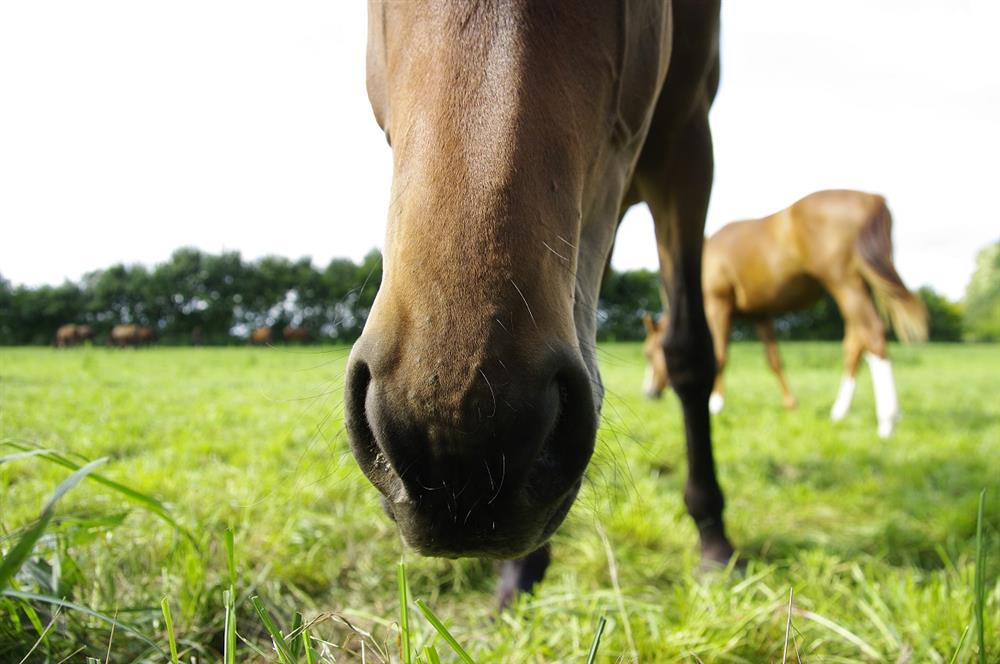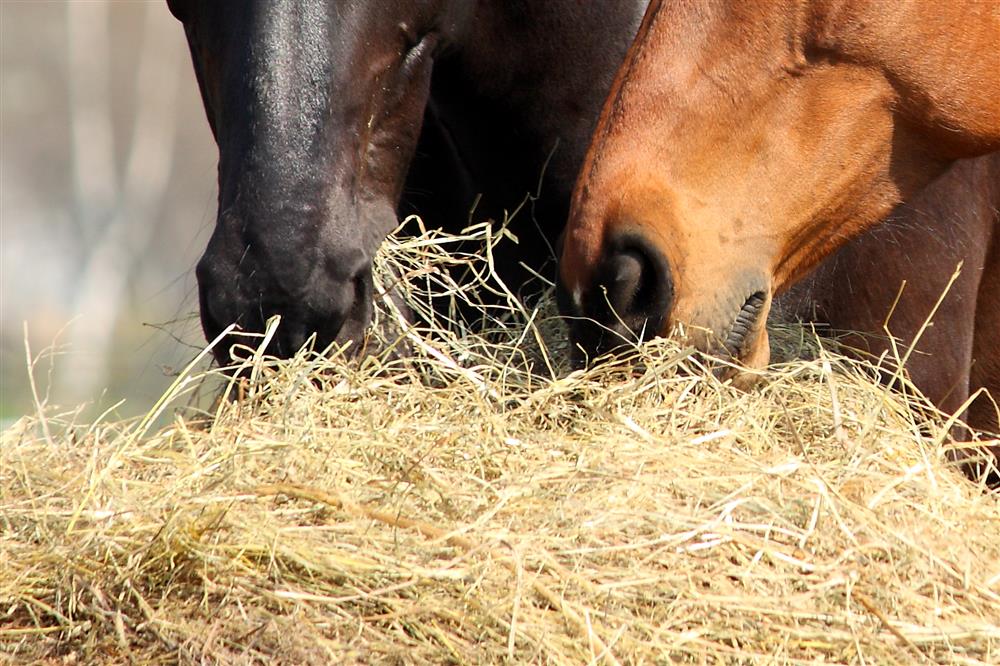Carbohydrates – Sugar, Starch and Fibre For Your Horse
Carbohydrates are the most important part of your horse’s diet, but the confusing part comes when we say that fibre, sugar and starch are all… carbohydrates. Whilst carbohydrates are essential as part of your horse’s feed it is a good idea to know more about what makes them different and how each type affects your horse’s digestive system.

Whilst fibre has a glowing reputation, sugar and starch tend to be seen as negative elements and have a bad reputation in horse feeds nowadays, even though they are very much natural components of your horse’s diet! This is because they have been linked to issues such as Laminitis, Equine Metabolic Syndrome (EMS) and obesity. However, in the correct amounts, they are beneficial to your horse.
Types of carbohydrates
|
Examples |
|
|
Monosaccharides (1 molecule) |
Glucose, Fructose, Galactose, Mannose, Arabinose, Xylose |
|
Disaccharides (2 molecules) |
Lactose, Maltose, Sucrose |
|
Oligosaccharides (3-10 molecules) |
Raffinose, Stachyose, Fructooligosaccharides |
|
Polysaccharides (10 or more molecules) |
Starch, Cellulose, Hemicellulose, Pectin |
What is fibre?
Fibre is a carbohydrate, also known as cellulose, made up of multiple glucose molecules in long rods rather than branches like sugar and starch. When broken down by the horse through the process of hind gut fermentation it produces Volatile Fatty Acids (VFAs) for “slow release energy”. Fibre is an insoluble carbohydrate. This is what makes fibre a different carbohydrate to sugar and starch.
What is sugar?
Sugar is a simple carbohydrate that is made up of one or two molecules. It can be digested easily by the horse in the small intestine. Glucose and sucrose are the most common and well known of the sugars that can often be found in the compositions in varying amounts in most plant-based horse feeds, grass and hay. Sugar is an essential energy source and is a water-soluble carbohydrate (WSC).
What is starch?
Starch is also a carbohydrate but is made up of 3 or more molecules of glucose, which is the base molecule of starch. Starch is broken down through digestion into separate glucose molecules and is mainly found in cereal grains as well as in varying amounts in forages. Starch is a water-soluble carbohydrate.
How much sugar is in hay and grass?
Fructan is how grass stores sugar and is digested through hind gut fermentation as a fibre, whereas other simple sugars in grass such as sucrose (glucose + fructose) are broken down and absorbed in the small intestine.

Did you know that grass can contain as much as 50% water soluble carbohydrate (WSC) of which around 7.5% are simple sugars such as sucrose! So, for your average 500kg horse consuming 10kg of grass (dry matter) per day, they may be eating around 5kg of sugars (WSC)! This is not all bad because the simple sugar provided by grass are utilised as the key energy source for the body’s tissues such as the muscles and the brain.
On the other hand, hay contains about 100-310g WSC/kg of Dry Matter (DM). Soaking and steaming hay can reduce WSC content however this has a large variance depending on how long it is soaked/steamed for.
Fermentation of starch produces lactic acid which is utilised in the small intestine. Higher starch intakes can increase the risk of it reaching the hind gut, where it cannot be absorbed, so will produce unwanted lactic acid.
High levels of sugars and starches can disrupt hindgut fermentation. As the horse becomes unable to process the sugars and starches, they flood into the hindgut, disrupt the environment and can reduce the efficiency of fibre fermentation as well as produce more acidic products called endotoxins. High cereal diets can be used if fed in the correct quantities, however if over fed will cause the sugars and starch to be flooded into the hind gut. When consumed in large quantities in a single meal this can also induce a “sugar rush” which can lead to an array of behavioural issues. The condition Polysaccharide Storage Myopathy, also known as "tying up" can be aggravated by both starch and sugar, especially if a horse is particularly prone.
Some horses such as those prone to Laminitis or with Equine Metabolic Syndrome (EMS) will have specific dietary requirements which will most likely include low sugar and starch intakes.
The word molasses rings alarm bells for many horse owners, especially if their horse is prone to laminitis. Molasses free doesn’t necessarily mean that there is no sugar in the feedstuff, be sure to check the analytical data on the back of the bag or tub. It must be noted that horses do need sugar and starch in their diets, in the correct quantities specific to that horse, in order to keep healthy.

How much sugar and starch does my horse need?
This really does depend on the history of the horse and their workload. As a general rule, horses in light work will tend to require much less starch and a high fibre diet will suit them well, whereas a horse which is in hard work will often require a higher starch diet in order to maximise muscle glycogen stores for their exercise output. Starch in the diet will also help quicken post-work recovery.
If your horse is prone to any of the conditions mentioned above, then feeding both starch and sugar appropriately will be beneficial. Make sure to check the feed packaging to look for low sugar and starch feedstuffs.
How much sugar and starch is in my feedstuff?
Example 1: If a mix contains 5% sugar and 21% starch and you are feeding 1.8kgs per day
0.05 x 1.8 x 1000 = 90 grams of sugar
0.21 x 1.8 x 1000 = 378 grams of starch
Example 2: A 1kg Fibre Block contains 4.3% sugar and 2.1% starch
0.043 x 1 x 1000 = 43 grams of sugar
0.021 x 1 x 1000 = 21 grams of starch
Example 3: A 1kg Grass Block contains 13.7% sugar and less than 2% starch
0.137 x 1 x 1000 = 137 grams of sugar
0.02 x 1 x 1000 = 20 grams of starch
Feel free to contact one of our Nutritional Advisors on 0800 585525 or email [email protected] to discuss more.
